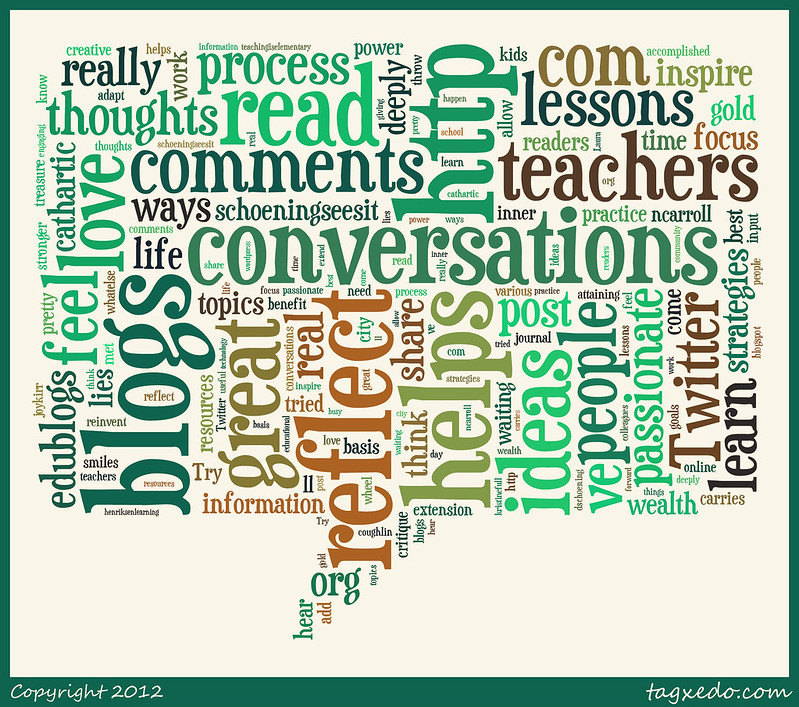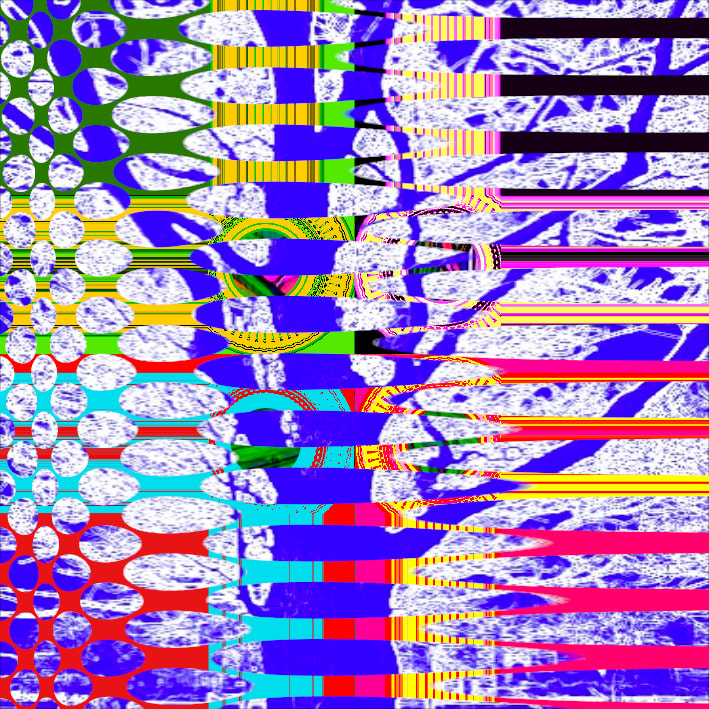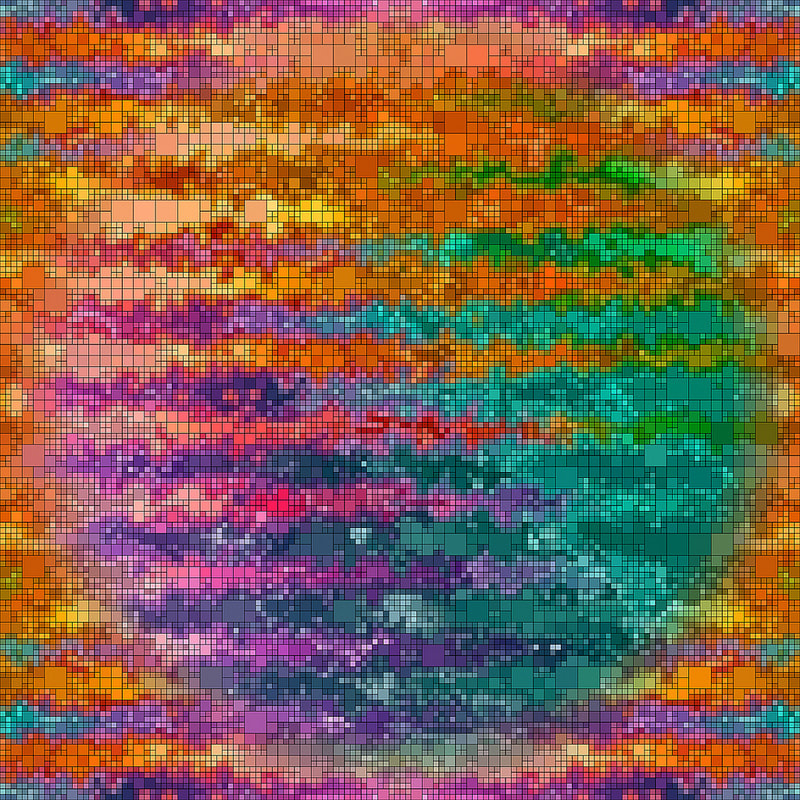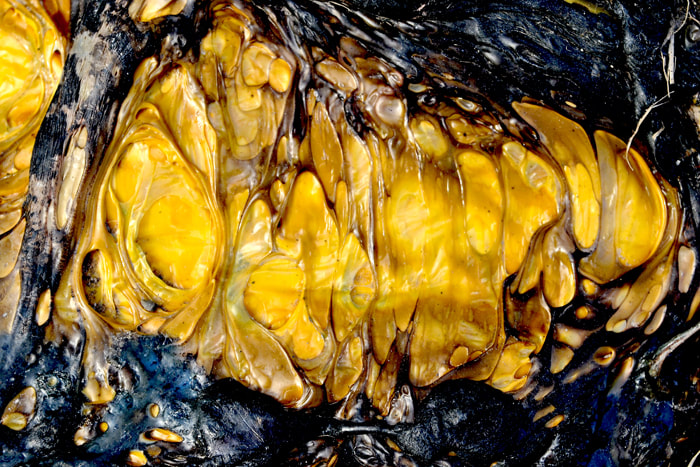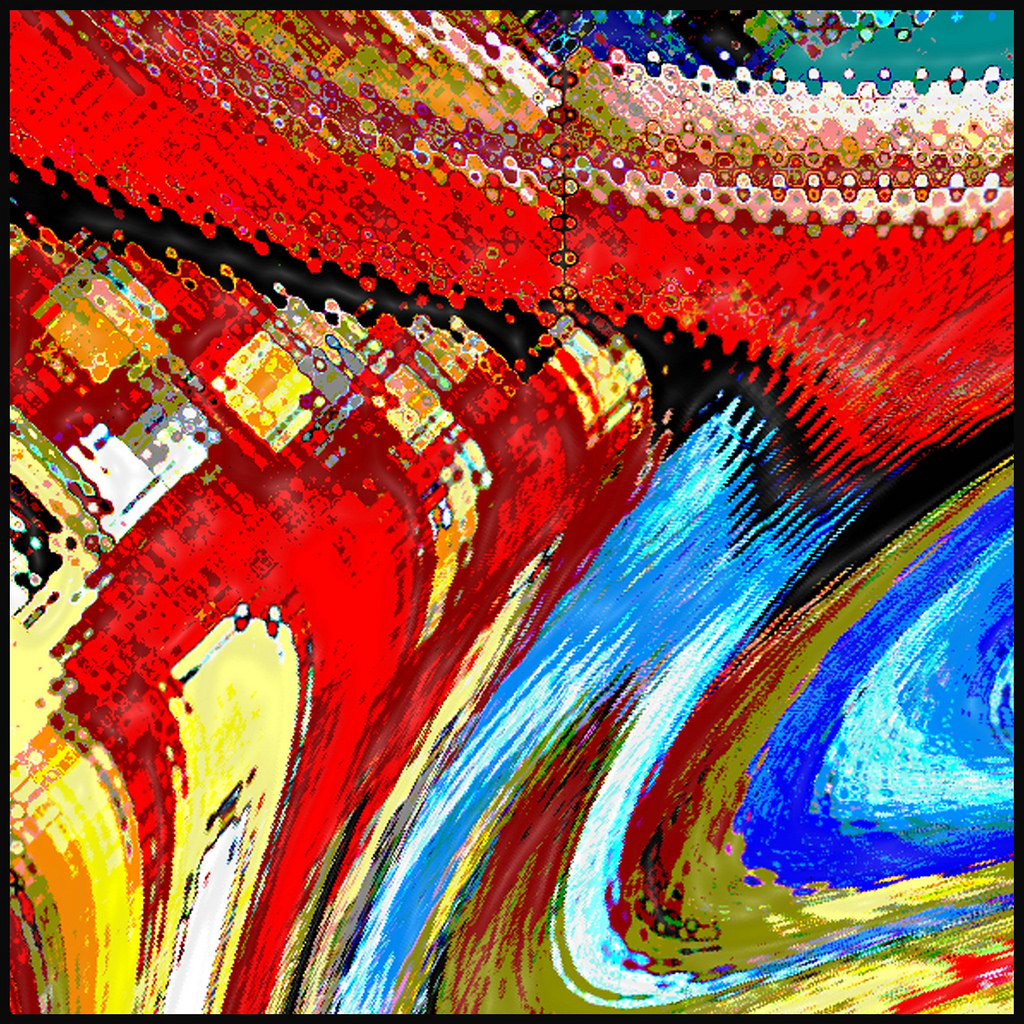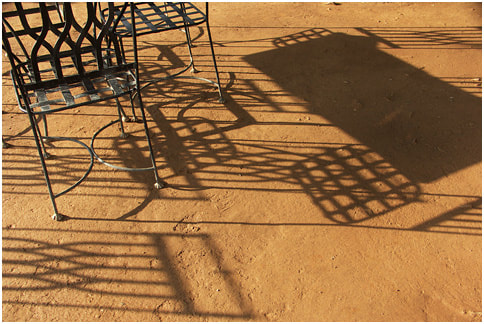- Home
- Process Worldview
- Community
- Art and Music
- Whitehead and Process Thinking
- Podcasts
- Spirituality
- Ecological Civilization
- Education
- Contact
- Social Justice
- Science
- Animals
- Sacred Poems
- Whitehead Videos
- Index of All Titles
- Practicing Process Thought
- Process Spirituality: A Spiritual Alphabet
- Recent Posts
Confessions of an Occasionally
Boring Teacher
Dear God,
You know my heart is in a good place. You know I want to be a teacher who inspires my students. But sometimes I have been boring, and I think I'm part of the problem. My approach to classroom teaching has been misguided. I have wanted my students to have a precise knowledge of my field, and I've wanted them to be able to apply that knowledge. But I have forgotten that they must first sense the beauty, the poetry, the attractiveness of the subject I teach. I have aimed at precision and generalization, but forgotten romance. I know you forgive me, but I hope they can, too. I'm working on it.
Occasionally Boring Teacher
Romance, Precision, and Generalization
Leslie Muray
Whitehead was strongly convinced that the purpose of education is to guide people in understanding the art of life. What he meant by this was as a whole an accomplishment of varied activity that expresses the potentialities of individuals interacting with their actual environments as much as possible, if, as Whitehead thought, each individual is the embodiment of the adventure of life, of existence itself, the art of life is the guiding of this advance. And that is the aim of education.
Paralleling the description of the becoming of a momentary experience, Whitehead described what he called the rhythm of education as consisting of three stages. The rhythm of education is quite simply the notion that certain subjects and the appropriate methods of study need to be correlated with the student’s stage of mental development. The three stages that comprise this rhythm are those of romance, precision, and generalization.
The stage of romance is characterized by what Whitehead calls fascination and romantic emotion in relation to the subject matter. In this stage, education consists of tapping the creativity of which any living organism, anything actual at all, is an instance; it is the stimulation of the restless, ceaseless striving that characterizes life itself.
Here we find a fundamental difference between the Lockean presuppositions of contemporary education and process thought. In the relational vision, the human mind is not merely the passive recipient of knowledge and information, as in our analogy of the empty bucket waiting to be filled with water. To be sure, for process thinkers, there is a receptive side to the human mind as there is to anything actual at all. However, as is the case with anything actual at all, there is an active, creative side to the human mind as well. To put it differently, this phase of education is the "drawing out’ of the drive of the human organism to fulfill itself. This has not been one of the strong points of traditional education.
Probably the most perennial problem for educators is that motivation. How do I motivate my students to learn? This is certainly the question the romantic stage tries to address. Ultimately, no teacher can coerce a student to learn anything; the motivation to learn needs to come from the student herself/himself. Nevertheless, the teacher can be a vital stimulus, a midwife, in tapping and "drawing out" the student’s desire to learn.
The second stage in the rhythm of education is precision. This stage is characterized by repetition, rote learning, and memorization. While it can all too easily suffocate the sense of romance, it is nevertheless equally indispensable to the educational process. Discipline, repetition, memorization, are vital to learning or the acquisition of any skill, whether it be in a specific academic discipline, operating a computer, typing or driving a car. The key is to achieve a balance between romance and precision or acquire the ability to be precise without suffocating creativity. Let me illustrate.
Learning to drive is accomplished by practice, repetition, by driving until it becomes a habit that is "second nature" to most of us. Driving requires skills that have become so much a part of us that we use them automatically, unconsciously, and unreflectively: turning the ignition on, stopping at a red light or stop sign, looking frequently through the rear view mirror, etc.
Nevertheless, no matter how skilled and experienced a driver may be, no textbook, driver’s manual, or teacher can anticipate every conceivable situation. Each one of us has encountered situations while driving that required creativity and, especially, a quick, spontaneous response. Even though I have been driving for twenty-two years, mostly on California freeways and Arizona highways and back roads, during a period of three months I have witnessed two freeway crashes of a sort I have never seen before: two cars headed in the same direction in adjacent lanes collided, went out of control, with totally unpredictable results for all nearby motorists; it took a great deal of quick reacting and creative maneuvering to avert further accidents.
The final stage of the rhythm of education is generalization; it combines romanticism and precision, and yet is more than a synthesis of the two. It is the fruition of the education process, combining the zest and creativity of the romantic phase with precision, culminating in fulfillment.
The stages of the rhythm of education parallel the becoming of a momentary experience. The romantic stage is similar to the prehension of data from the past and the lure of the possibilities of the future; the stage of precision parallels the stage of the creative synthesis of these data and possibilities; the stage of generalization resembles the final stage of the becoming of a momentary experience, the culmination of an actuality’s drive toward fulfillment, or in Whitehead’s word, satisfaction. The three stages of the rhythm of education are then repeated.
Let me illustrate, once again, with an example from my own teaching experience. Still making extensive use of the traditional lecture method, I first of all try to keep the subject matter interesting, with frequent examples from lived experiences, much in the manner of this book. I not only present content but try to challenge students with new ideas and foster their ability to reflect critically. When I present a new idea, I want students to understand it, to think about it, to wrestle with what impact, if any, it has on their thinking, and to give cogent reasons, for or against, for their reactions. Needless to say, the question of motivation is involved here. If I take a certain position, I encourage students to find the loopholes in the arguments and to critique. As part of the attempt to encourage them to reflect critically, at times I model it for them by presenting my own position, refuting it, then providing counter-arguments to the refutation once they have been appropriately taken into account. I also try to embolden them to ask questions, to comment, affirming them in their personhood and the validity of their ideas, yet challenging them to go beyond where they have been.
In effect, I attempt to model the relational vision. Modeling receptivity, responsiveness, sensitivity, which I described earlier as virtues in a process perspective, I also serve as a proposition, combining actuality with possibility, and hopefully luring students, not to an uncritical abandonment of previous ideas and habits of thought, but to creative transformation. In my mind, an effective teacher is a midwife in the process of creative transformation.
In terms of our previous discussion of the rhythm of education, the subject matter and an interesting manner of presenting it, the challenge of new ideas hopefully touches the recesses of creativity within each student, and stimulates their interest, prompting interest in further inquiry. This is the stage of romance. The expectation that students know the content of the subject matter is analogous to the stage of precision. The assimilation of content and the ability to interact with it critically parallels the stage of generalization.
My method of testing also is an attempt to model the relational vision. My preference, depending on the size, level, and subject matter of the class, is to give "take home" exams. In the "Contemporary Religious Thought" class I taught at Arizona State University, the final exam was a take home that asked students to delineate their own philosophies of life in critical interaction with three thinkers of schools we studied. I found that while most students had not given this question much thought, they found it very helpful in articulating their life orientation and providing an opportunity to learn about themselves. And by making the subject matter so existential, they certainly knew and remembered their material.
Paralleling the description of the becoming of a momentary experience, Whitehead described what he called the rhythm of education as consisting of three stages. The rhythm of education is quite simply the notion that certain subjects and the appropriate methods of study need to be correlated with the student’s stage of mental development. The three stages that comprise this rhythm are those of romance, precision, and generalization.
The stage of romance is characterized by what Whitehead calls fascination and romantic emotion in relation to the subject matter. In this stage, education consists of tapping the creativity of which any living organism, anything actual at all, is an instance; it is the stimulation of the restless, ceaseless striving that characterizes life itself.
Here we find a fundamental difference between the Lockean presuppositions of contemporary education and process thought. In the relational vision, the human mind is not merely the passive recipient of knowledge and information, as in our analogy of the empty bucket waiting to be filled with water. To be sure, for process thinkers, there is a receptive side to the human mind as there is to anything actual at all. However, as is the case with anything actual at all, there is an active, creative side to the human mind as well. To put it differently, this phase of education is the "drawing out’ of the drive of the human organism to fulfill itself. This has not been one of the strong points of traditional education.
Probably the most perennial problem for educators is that motivation. How do I motivate my students to learn? This is certainly the question the romantic stage tries to address. Ultimately, no teacher can coerce a student to learn anything; the motivation to learn needs to come from the student herself/himself. Nevertheless, the teacher can be a vital stimulus, a midwife, in tapping and "drawing out" the student’s desire to learn.
The second stage in the rhythm of education is precision. This stage is characterized by repetition, rote learning, and memorization. While it can all too easily suffocate the sense of romance, it is nevertheless equally indispensable to the educational process. Discipline, repetition, memorization, are vital to learning or the acquisition of any skill, whether it be in a specific academic discipline, operating a computer, typing or driving a car. The key is to achieve a balance between romance and precision or acquire the ability to be precise without suffocating creativity. Let me illustrate.
Learning to drive is accomplished by practice, repetition, by driving until it becomes a habit that is "second nature" to most of us. Driving requires skills that have become so much a part of us that we use them automatically, unconsciously, and unreflectively: turning the ignition on, stopping at a red light or stop sign, looking frequently through the rear view mirror, etc.
Nevertheless, no matter how skilled and experienced a driver may be, no textbook, driver’s manual, or teacher can anticipate every conceivable situation. Each one of us has encountered situations while driving that required creativity and, especially, a quick, spontaneous response. Even though I have been driving for twenty-two years, mostly on California freeways and Arizona highways and back roads, during a period of three months I have witnessed two freeway crashes of a sort I have never seen before: two cars headed in the same direction in adjacent lanes collided, went out of control, with totally unpredictable results for all nearby motorists; it took a great deal of quick reacting and creative maneuvering to avert further accidents.
The final stage of the rhythm of education is generalization; it combines romanticism and precision, and yet is more than a synthesis of the two. It is the fruition of the education process, combining the zest and creativity of the romantic phase with precision, culminating in fulfillment.
The stages of the rhythm of education parallel the becoming of a momentary experience. The romantic stage is similar to the prehension of data from the past and the lure of the possibilities of the future; the stage of precision parallels the stage of the creative synthesis of these data and possibilities; the stage of generalization resembles the final stage of the becoming of a momentary experience, the culmination of an actuality’s drive toward fulfillment, or in Whitehead’s word, satisfaction. The three stages of the rhythm of education are then repeated.
Let me illustrate, once again, with an example from my own teaching experience. Still making extensive use of the traditional lecture method, I first of all try to keep the subject matter interesting, with frequent examples from lived experiences, much in the manner of this book. I not only present content but try to challenge students with new ideas and foster their ability to reflect critically. When I present a new idea, I want students to understand it, to think about it, to wrestle with what impact, if any, it has on their thinking, and to give cogent reasons, for or against, for their reactions. Needless to say, the question of motivation is involved here. If I take a certain position, I encourage students to find the loopholes in the arguments and to critique. As part of the attempt to encourage them to reflect critically, at times I model it for them by presenting my own position, refuting it, then providing counter-arguments to the refutation once they have been appropriately taken into account. I also try to embolden them to ask questions, to comment, affirming them in their personhood and the validity of their ideas, yet challenging them to go beyond where they have been.
In effect, I attempt to model the relational vision. Modeling receptivity, responsiveness, sensitivity, which I described earlier as virtues in a process perspective, I also serve as a proposition, combining actuality with possibility, and hopefully luring students, not to an uncritical abandonment of previous ideas and habits of thought, but to creative transformation. In my mind, an effective teacher is a midwife in the process of creative transformation.
In terms of our previous discussion of the rhythm of education, the subject matter and an interesting manner of presenting it, the challenge of new ideas hopefully touches the recesses of creativity within each student, and stimulates their interest, prompting interest in further inquiry. This is the stage of romance. The expectation that students know the content of the subject matter is analogous to the stage of precision. The assimilation of content and the ability to interact with it critically parallels the stage of generalization.
My method of testing also is an attempt to model the relational vision. My preference, depending on the size, level, and subject matter of the class, is to give "take home" exams. In the "Contemporary Religious Thought" class I taught at Arizona State University, the final exam was a take home that asked students to delineate their own philosophies of life in critical interaction with three thinkers of schools we studied. I found that while most students had not given this question much thought, they found it very helpful in articulating their life orientation and providing an opportunity to learn about themselves. And by making the subject matter so existential, they certainly knew and remembered their material.
Starting with Whitehead
Lynn De Jonghe

Parents and teachers want to give children the best opportunities for success in life. But opinions may vary vehemently about the methods for accomplishing these aims. Starting with Whitehead begins with the premise that today’s children will need skills and values to live in a world of fast-paced, turbulent change: creativity, problem solving ability, attitudes of life-long learning, emotional resilience, and appreciation of different perspectives.
As we seek guidance on these issues, we are led to the work of Alfred North Whitehead, who brilliantly perceived that the process of change itself is fundamental to our existence, how we experience ourselves and others, and how we interact with the world around us. In his classic work, The Aims of Education, he elaborated a three-stage process of learning, involving romance, precision and generalization. His vision of education calls for exploring real experiences rather than packing scraps of information into passive students.
This book offers examples of learning events at each stage that illustrate how adults can help children thrive in a world of change, based on the author’s experience working with children as a parent, teacher, principal and policy maker. Drawing on seminal psychological and educational research, De Jonghe sets these events in the context of a vigorous theoretical foundation and proposes specific strategies for success. Her recommendations have relevance for parents, teachers, principals, and policy makers.
- from the publisher
As we seek guidance on these issues, we are led to the work of Alfred North Whitehead, who brilliantly perceived that the process of change itself is fundamental to our existence, how we experience ourselves and others, and how we interact with the world around us. In his classic work, The Aims of Education, he elaborated a three-stage process of learning, involving romance, precision and generalization. His vision of education calls for exploring real experiences rather than packing scraps of information into passive students.
This book offers examples of learning events at each stage that illustrate how adults can help children thrive in a world of change, based on the author’s experience working with children as a parent, teacher, principal and policy maker. Drawing on seminal psychological and educational research, De Jonghe sets these events in the context of a vigorous theoretical foundation and proposes specific strategies for success. Her recommendations have relevance for parents, teachers, principals, and policy makers.
- from the publisher
Whitehead's Twelve Principles
of Holistic Education
Sometimes education kills creativity, stifles imagination, and destroys curiosity...all in the name of learning.
It is too standardized. It reduces students to test-taking-machines. It forgets connections between intellect and feeling. It neglects the imagination. It doesn't permit people to make mistakes. It forgets that sometimes the most important things in life -- love and trust and hope -- are vague. It confuses clarity with wisdom.
Here are some key ideas in Whitehead's philosophy that can help change things.
1. The Subject of Education. The ultimate subject in education is Life in all it manifestations: human life but also the life of the plants and animals, the earth, and the wider universe. The whole of nature is alive.
2. Creativity. Creativity is an essential dimension of life and it is found at every level of existence. The planets and stars are creative in their ways, and so are the quantum events within the depths of atoms. Animals are obviously creative in their capacities for innovation and adaptation. When educators stifle creativity, they are going against the very grain of the universe.
3. Collaborative Creativity. We are not skin-encapsulated egos cut off from the world by the boundaries of our skin; we are persons-in-community whose very identities are established in relation to others. Even if a person develops ideas in isolation, the ideas are a synthesis of countless forms of creativity developed by others.
4. Intellect and Feeling. The Western Enlightenment was mistaken to present the mind as if it were disembodied and disaffected, separable from feeling and movement. The intellect ought not to be separated from feeling. Even thinking is a form of feeling: a feeling of ideas. This includes even mathematical thinking. It is a felt exploration of pure potentialities.
5. Multiple forms of Intelligence. It is a mistake to reduce intelligence to science and mathematics, or even to book learning. There are multiple forms of intelligence: kinesthetic, empathic, mathematical, emotional, verbal, imaginative, and practical. All are important in different circumstances.
6. Aesthetic experience. Aesthetic experience plays an important role in education, because all experience is aesthetic. The very aim of education at its best is to provide people with ways of finding beauty in their lives and adding beauty to the lives of others. Even wisdom and compassion, even truth and goodness, are forms of beauty. Beauty consists of satisfying forms of harmony and intensity.
7. The Problem of Inert Ideas. The problem with education today is that it is focused on inert ideas. Inert ideas are ideas that are treated in isolation from their relevance to life and the world, and in isolation from their relevance to students. They are approached as commodities or as objects, but not as lures for feeling, understanding, and action. When ideas function effectively in education, they are alive with potentiality.
8. The Need for Romance. A good teacher must always remember that there are three phases to education: romance, precision, and generalization. The romantic stage occurs when students are introduced to ideas that engage them, that are interesting, that make them feel more alive. The precision can come later, but without romance where is no joy in education.
9. The Problem of Standardization. Education fails when it is locked into standardization when it should be focused on personalization. Each student is unique in his or her abilities, and in the particular forms of 'intelligence' that bring him or her joy and can help him or her contribute to the well-being of the world.
10. The Value of Learning by Doing. Education fails when it forgets the wisdom of the body, and when it forgets that, often, the most important kinds of learning occur through practice. Learning can occur from body to mind as well as mind to body. This does not mean that book learning is bad. To the contrary it is wonderful. But it's not enough.
11. The Problem of Disciplinary Fragmentation. In higher education today a central problem lies in the excessive specialization of academic disciplines. Often university professors assume that their primary goal is to introduce students into their academic guilds, forgetting the education is in service to life. While specialization can be valuable, it needs to be balanced by generalization, and transdisciplinary studies.
12. Whole Person Education. At every level education needs to be oriented toward the cultivation of whole persons who live satisfying lives and who, at the same time, can contribute to the common good of their communities and the world.
Most of these twelve principles can be applied to education at all levels: formal and informal, in public schools and at home, online and face-to-face, secular and religious. What is needed are good teachers who can bring them down to earth.
Among process-influenced educators, one good example of applied process pedagogy is the work of Bangxiu Xie and her FEELS approach. It is, to my knowledge, the most sustained articulation of a process pedagogy that now exists. FEELS stands for flexibility of objectives, engagement of learners, embodiment of knowledge, liveliness of relational learning, and supportiveness of teachers. In my own life as a teacher, I have often been reminded of the importance of these five pedagogical values. Complementing Xie's approach is an excellent book by Lynn De Jonghe.
-- Jay McDaniel, May 2020
It is too standardized. It reduces students to test-taking-machines. It forgets connections between intellect and feeling. It neglects the imagination. It doesn't permit people to make mistakes. It forgets that sometimes the most important things in life -- love and trust and hope -- are vague. It confuses clarity with wisdom.
Here are some key ideas in Whitehead's philosophy that can help change things.
1. The Subject of Education. The ultimate subject in education is Life in all it manifestations: human life but also the life of the plants and animals, the earth, and the wider universe. The whole of nature is alive.
2. Creativity. Creativity is an essential dimension of life and it is found at every level of existence. The planets and stars are creative in their ways, and so are the quantum events within the depths of atoms. Animals are obviously creative in their capacities for innovation and adaptation. When educators stifle creativity, they are going against the very grain of the universe.
3. Collaborative Creativity. We are not skin-encapsulated egos cut off from the world by the boundaries of our skin; we are persons-in-community whose very identities are established in relation to others. Even if a person develops ideas in isolation, the ideas are a synthesis of countless forms of creativity developed by others.
4. Intellect and Feeling. The Western Enlightenment was mistaken to present the mind as if it were disembodied and disaffected, separable from feeling and movement. The intellect ought not to be separated from feeling. Even thinking is a form of feeling: a feeling of ideas. This includes even mathematical thinking. It is a felt exploration of pure potentialities.
5. Multiple forms of Intelligence. It is a mistake to reduce intelligence to science and mathematics, or even to book learning. There are multiple forms of intelligence: kinesthetic, empathic, mathematical, emotional, verbal, imaginative, and practical. All are important in different circumstances.
6. Aesthetic experience. Aesthetic experience plays an important role in education, because all experience is aesthetic. The very aim of education at its best is to provide people with ways of finding beauty in their lives and adding beauty to the lives of others. Even wisdom and compassion, even truth and goodness, are forms of beauty. Beauty consists of satisfying forms of harmony and intensity.
7. The Problem of Inert Ideas. The problem with education today is that it is focused on inert ideas. Inert ideas are ideas that are treated in isolation from their relevance to life and the world, and in isolation from their relevance to students. They are approached as commodities or as objects, but not as lures for feeling, understanding, and action. When ideas function effectively in education, they are alive with potentiality.
8. The Need for Romance. A good teacher must always remember that there are three phases to education: romance, precision, and generalization. The romantic stage occurs when students are introduced to ideas that engage them, that are interesting, that make them feel more alive. The precision can come later, but without romance where is no joy in education.
9. The Problem of Standardization. Education fails when it is locked into standardization when it should be focused on personalization. Each student is unique in his or her abilities, and in the particular forms of 'intelligence' that bring him or her joy and can help him or her contribute to the well-being of the world.
10. The Value of Learning by Doing. Education fails when it forgets the wisdom of the body, and when it forgets that, often, the most important kinds of learning occur through practice. Learning can occur from body to mind as well as mind to body. This does not mean that book learning is bad. To the contrary it is wonderful. But it's not enough.
11. The Problem of Disciplinary Fragmentation. In higher education today a central problem lies in the excessive specialization of academic disciplines. Often university professors assume that their primary goal is to introduce students into their academic guilds, forgetting the education is in service to life. While specialization can be valuable, it needs to be balanced by generalization, and transdisciplinary studies.
12. Whole Person Education. At every level education needs to be oriented toward the cultivation of whole persons who live satisfying lives and who, at the same time, can contribute to the common good of their communities and the world.
Most of these twelve principles can be applied to education at all levels: formal and informal, in public schools and at home, online and face-to-face, secular and religious. What is needed are good teachers who can bring them down to earth.
Among process-influenced educators, one good example of applied process pedagogy is the work of Bangxiu Xie and her FEELS approach. It is, to my knowledge, the most sustained articulation of a process pedagogy that now exists. FEELS stands for flexibility of objectives, engagement of learners, embodiment of knowledge, liveliness of relational learning, and supportiveness of teachers. In my own life as a teacher, I have often been reminded of the importance of these five pedagogical values. Complementing Xie's approach is an excellent book by Lynn De Jonghe.
-- Jay McDaniel, May 2020
Quotes from AN Whitehead in The Aims of Education
|
There is only one subject-matter for education, and that is Life in all its manifestations.
In a sense, knowledge shrinks as wisdom grows: for details are swallowed up in principles. The merely well-informed man is the most useless bore on God's earth. Every intellectual revolution which has ever stirred humanity into greatness has been a passionate protest against inert ideas. Let the main ideas which are introduced into a child's education be few and important, and let them be thrown into every combination possible. If education is not useful, what is it? Education is the acquisition of the art of the utilization of knowledge. In education, as elsewhere, the broad primrose path leads to a nasty place. The problem of education is to make the pupil see the wood by means of the trees. Duty arises from our potential control over the course of events. The importance of knowledge lies in its use, in our active mastery of it—that is to say, it lies in wisdom. It is in respect to the activity of knowledge that an over-vigorous discipline in education is so harmful. The habit of active thought, with freshness, can only be generated by adequate freedom. Undiscriminating discipline defeats its own object by dulling the mind. The environment within which the mind is working must be carefully selected. It must, of course, be chosen to suit the child's stage of growth, and must be adapted to individual needs. It must never be forgotten that education is not a process of packing articles in a trunk. . . . Its nearest analogue is the assimilation of food by a living organism: and we all know how necessary to health is palatable food under suitable conditions. When you have put your boots in a trunk, they will stay there till you take them out again; but this is not at all the case if you feed a child with the wrong food. An unskillful practitioner can easily damage a sensitive organism. It is necessary in life to have acquired the habit of cheerfully undertaking imposed tasks. I am sure that one secret of a successful teacher is that he has formulated quite clearly in his mind what the pupil has got to know in precise fashion. The secret of success is pace, and the secret of pace is concentration. The habit of the active utilisation of well-understood principles is the final possession of wisdom. Unless the pupils are continually sustained by the evocation of interest, the acquirement of technique, and the excitement of success, they can never make progress, and will certainly lose heart. |
